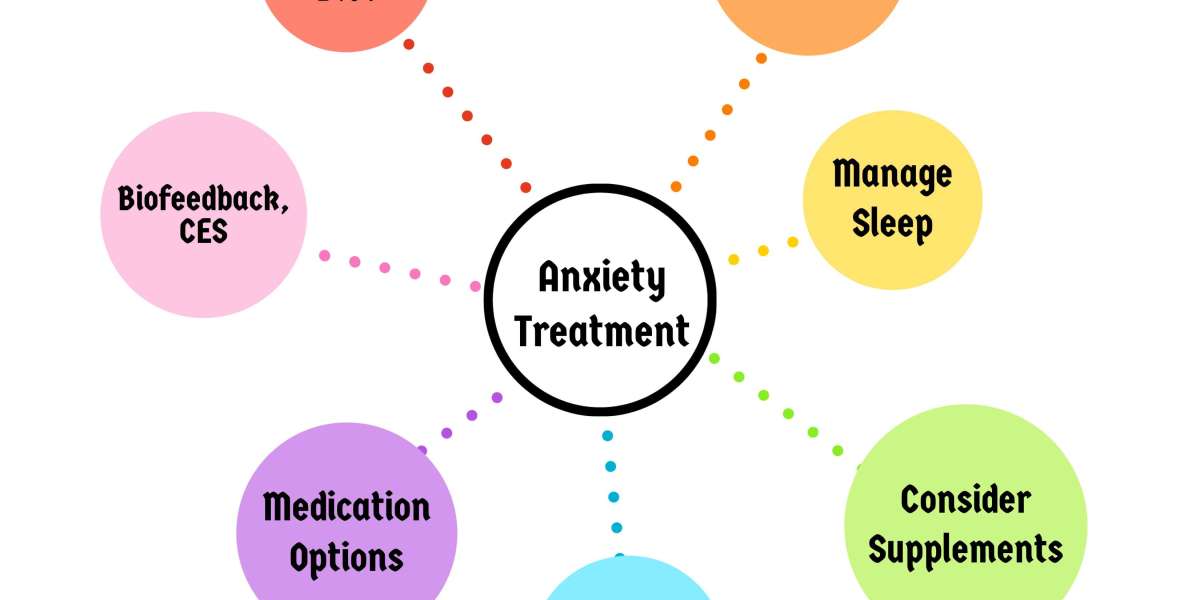Introduction
Anxiety can feel like a constant shadow over your life. Whether it's triggered by work stress, personal challenges, or health concerns, it can weigh heavily on your mental and physical well-being. But what if traditional methods like medication aren’t your preference? Luckily, there are alternative options that can make a difference. Let’s dive into seven effective ways to manage anxiety naturally.
Lifestyle Modifications
Importance of Regular Exercise
Getting your body moving isn’t just about physical fitness—it’s a mental game-changer. Exercise releases endorphins, those feel-good hormones that can help combat anxiety.
How Exercise Eases Anxiety Symptoms
Activities like running, swimming, or even brisk walking can reduce tension and elevate your mood. Regular movement helps regulate your stress response, making it easier to handle everyday pressures.
Balanced Diet
Your brain and body thrive on what you feed them.
Foods to Avoid for Anxiety Management
Steer clear of caffeine, sugar, and processed foods. These can spike your anxiety levels and leave you feeling jittery.
Nutritional Boosters for Mental Health
Include foods rich in omega-3 fatty acids, magnesium, and antioxidants, like salmon, spinach, and berries, to nourish your brain.
Sleep Hygiene
Without proper rest, your brain has a harder time coping with stress.
Creating a Sleep-Friendly Environment
Stick to a bedtime routine, limit screen time before bed, and keep your room dark and cool. Even small changes can make a big difference.
Mindfulness and Meditation
What is Mindfulness?
Mindfulness is about being present in the moment without judgment. It’s a powerful tool to quiet a racing mind.
Benefits of Meditation for Anxiety
Meditation helps you focus on your breathing and let go of intrusive thoughts.
Guided vs. Self-Led Meditation
Guided meditation apps like Calm or Headspace can be helpful for beginners. Once you're comfortable, you can transition to self-led practices.
Herbal Remedies
Chamomile Tea
Known for its calming properties, chamomile tea can ease anxiety and help you sleep better.
Lavender Essential Oil
A few drops of lavender oil in a diffuser or on your pillow can promote relaxation.
Valerian Root
This herb has been used for centuries to manage anxiety and improve sleep quality.
Cognitive Behavioral Techniques
Practicing Positive Affirmations
Telling yourself positive statements like "I am in control of my emotions" can rewire negative thought patterns.
Challenging Negative Thoughts
Sometimes, anxiety thrives on irrational fears.
Cognitive Reframing Strategies
Question the validity of your worries and replace them with constructive alternatives.
Yoga and Breathing Exercises
Yoga Poses for Anxiety Relief
Poses like Child’s Pose and Warrior II can release tension and calm your mind.
Benefits of Controlled Breathing
Breathing exercises help regulate your heart rate and nervous system.
Box Breathing Technique
Inhale for four seconds, hold for four seconds, exhale for four seconds, and repeat. It’s a quick way to regain composure.
Art and Creative Therapies
Expressing Emotions through Art
Painting, drawing, or sculpting can be incredibly therapeutic.
Journaling for Mental Clarity
Writing down your thoughts provides a safe outlet to process emotions and clear your mind.
Social Support Systems
Building a Support Network
Having friends and family who listen and care can alleviate the weight of anxiety.
Benefits of Support Groups
Connecting with others who share similar struggles fosters understanding and reduces isolation.
Conclusion
Managing anxiety is a journey, not a sprint. These alternative options can provide relief, but it’s essential to find what works best for you. Remember, combining multiple approaches often leads to the most success. Take it one step at a time, and don’t hesitate to seek professional guidance if needed.
FAQs
What are the best herbal remedies for anxiety?
Chamomile tea, lavender essential oil, and valerian root are popular choices.
How often should I meditate to reduce anxiety?
Even 10-15 minutes daily can make a significant difference over time.
Can breathing exercises immediately calm anxiety?
Yes, techniques like box breathing can provide instant relief during anxious moments.
Is yoga more effective than other physical exercises for anxiety?
Yoga combines movement with mindfulness, making it uniquely effective for anxiety relief.
How can I find local support groups for anxiety?
Check online directories or ask mental health professionals for recommendations.








